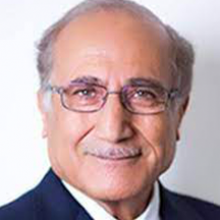You are here
Economy in 2016
Dec 29,2015 - Last updated at Dec 29,2015
It is difficult to make predictions for 2016 when even the final figures for the year 2015 will not be out until three months from now.
The World Bank estimated the GDP growth for 2015 to be 2.5 per cent. I believe it will be lower. The World Bank report is rich with valuable information and analysis.
The impact of the refugees on the growth is not calculated in the recently launched biannual “Economic Monitor”.
Even if we accept the predicted growth rate at face value, and add to it the 2.5 per cent cost of living increase, the result would be 5 per cent, and not 9 per cent as the prime minister stated when he discussed his government’s economic policies and actions in Parliament last week.
The economy will score some improvement in 2016, especially if the following happens in the course of the year:
— The road to Baghdad opens when the Iraqi army and its supporters ensure the safe passage of trucks though Al Anbar province.
— The Geneva agreement succeeds in bringing the warring Syrian parties together and a roadmap as delineated by the recent UN Security Council resolution is drawn with meaningful practical steps.
— The London conference in support of Jordan is held upon the joint invitation of the UK government and the World Bank in February. It may secure adequate amounts for Jordan to grapple with the high cost of refugees, in both the short and the long run.
— The government will spend its allocations wisely and create a synergetic rise in the economic activities in the crucial sectors.
— Oil prices will rise to about $50, thus keeping our economic exchange with the GCC active and helping the GCC economies to look more prospective.
— The US continues, after next year’s elections, to be committed to support Jordan financially and welcomes Jordan’s exports.
Some of the above may not happen.
For instance, if the wars in the region continue, or even gain more momentum, the economy of the Middle East will be put to a severe test.
Jordan has been doing overall an admirable job at keeping its economy afloat. Yet, more can be done.
The opportunities, which could have been better utilised, could have cushioned the growth rate.
Tourism, better expenditure of the Gulf capital aid, solving come investment bottlenecks and attracting more FDI offered such opportunities.
The forthcoming debate of the budget in both Houses will produce a different vision from what the government proposes.
There were few tangible achievements. Most notable among these is the push to implement an energy strategy, but this may require a new outlook.
Enforcement of the law against violators was more robust (especially in the water and electricity sectors).
2016 is going to be an economic analyst’s gold mine. New laws, new elections law, new political and military developments and probably a new government constitute potential “breaking news”.
The writer, a former Royal Court chief and deputy prime minister, is a member of Senate. He contributed this article to The Jordan Times.










